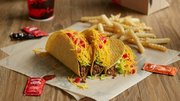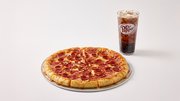Blog
Go big or stay home: How restaurant brands should approach international growth
While many quick service restaurants and casual dining restaurants have the appetite for international expansion, they often wind up with indigestion after investing significant resources. The reason? These brands treat their international divisions as ancillary businesses, rather than as primary growth drivers.

March 4, 2015
By Wiley Bell, Jon Weber and John Moran
While many quick service restaurants and casual dining restaurants have the appetite for international expansion, they often wind up with indigestion after investing significant resources. The reason? These brands treat their international divisions as ancillary businesses, rather than as primary growth drivers.
The international opportunities are impossible to ignore. There are more than one billion middle class consumers globally, and the vast majority is outside of North America. But both developed economies such as Germany and France as well as emerging markets like China and Brazil are only a fraction as penetrated as the U.S. – even after adjusting for income.
Category leading QSR brands like McDonald's, Subway and KFC have been tremendously successful internationally. McDonald's now has higher QSR market share in the rest of the world than it does domestically; KFC has roughly as many stores in China as in the U.S.
Yet almost without exception, second-tier QSR brands have enjoyed far less success abroad. International markets typically account for less than 20% of revenue. Despite KFC's success introducing Southern fried chicken to China, Chick-Fil-A, Popeyes, and Church's are virtually absent there.
Casual dining brands have had even less success, averaging only 5% revenue from outside the U.S. To be sure, CDRs have higher prices, more indigenous alternatives, greater operational complexity, and the limitations of the franchise model. Notwithstanding these challenges, very few casual dining brands have truly cracked the international code.
Why do brands struggle overseas? We see three root causes:
1) Inadequate commitment and denial. Going global requires vision, and the C-suite, Board and investors must all be aligned. Success rarely comes overnight and demands extraordinary perseverance in many markets. In France, this means adapted menus and a willingness to deal with difficult real estate, tax and labor law issues; McDonald's built up its huge presence over decades. By contrast, Burger King ultimately withdrew in 1997, having failed to tailor its concept sufficiently. KFC re-entered the market in 2001 and reportedly took the better part of a decade to break even—but France is now its most profitable market on a per-unit basis.
2) A lack of focus. For many brands, international strategy becomes an exercise of chasing unit counts and planting flags, which results in too many stores spread across too many markets. Brands thus end up with fragmented portfolios, which are difficult to manage and leave the most attractive markets underdeveloped.
Yum!, now a paragon of international success, initially struggled with spreading itself too thin – at one point they were in twice as many countries as McDonald's with half as many restaurants. They reversed course after an exhaustive study of how McDonald's expanded into new markets. More recently, Chipotle already has 16 restaurants spread across Canada, the U.K., France and Germany. Last year, Chipotle found its awareness in London was only 1%, leading to significantly lower average unit volumes (AUVs) than in the U.S. Focusing on one or two markets feels like turning down opportunity, but is much more likely to deliver market insight, brand strength, and operating and organizational scale.
3) A failure to question conventional wisdom. There is no one-size-fits-all approach to international growth, yet too many restaurant brands unquestioningly follow the same playbook, without considering the alternatives. That playbook includes:
- Picking high-growth developing markets. Under-penetrated markets in the BRICs, the Middle East and Southeast Asia may seem to be logical choices – until you take a closer look at challenges like cultural differences, intense price sensitivity, political risks, and surprisingly high costs necessary to secure prime real estate and build the brand. Alternatively, developed economies – generally featuring better established, more favorable dining habits, higher AUVs, and relative ease of doing business – may be worth a second look.
- Relying on local partners to drive growth. When brands choose to franchise internationally, they often find that many of the best franchisees in targeted markets are already taken by the long-established leading brands. This leaves primarily B-level partners willing to take a risk on the next new entrant. Since franchisees often control many of the factors that affect your success in a new market (such as development and pricing), the wrong partner can sink your efforts.
- Assuming franchising is the only approach. When building up a new market, franchisees often make poor pioneers – they're more concerned with immediate sales and profits than longer-term concept optimization and brand-building. In many cases, a healthy mix of company operations and careful franchising is the better approach. Furthermore, having some number of company stores keeps you closer to local consumer and market trends.
Substantial prizes await those restaurant brands with the commitment to "go big" abroad. Many QSR and CDR brands won't commit to international growth, spread themselves too thin, and fail to question conventional wisdom about markets and partnership approaches. Winning abroad requires focus, perseverance and original thinking backed by detailed analysis – and then bold investments. If you can't make that commitment, you might as well stay home.
Wiley Bell is a Managing Director in L.E.K. Consulting’s New York office. He has advised senior executives for more than 30 years and has deep expertise in restaurants and consumer products.
Jon Weber is a Managing Director and Head of the Retail & Consumer Products practices at L.E.K. Consulting. He leads L.E.K.’s Restaurant practice in the U.S. and has extensive experience working across retail channels and with worldwide consumer brands.
John Moran is a Senior Engagement Manager at L.E.K. Consulting. He has been with the firm since 2011 and advises clients across the retail and consumer products spectrum.









